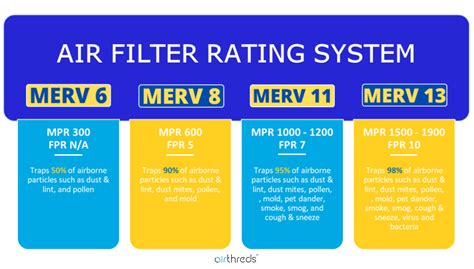Clean Air, Happy Family: Your Merv 8 Filter Guide
Indoor air quality is a critical factor influencing the health and well-being of your family. While we often focus on outdoor pollution, the air within our homes can harbor a surprising number of allergens, pollutants, and irritants. This is where a good air filter, like a MERV 8 filter, plays a crucial role. This guide will explore everything you need to know about MERV 8 filters, helping you choose the right one for your home and breathe easier.
What is a MERV Rating?
MERV stands for Minimum Efficiency Reporting Value. It's a rating system that measures the effectiveness of an air filter in removing airborne particles from the air. The higher the MERV rating, the more efficient the filter is at trapping smaller particles. MERV ratings range from 1 to 16, with higher numbers indicating better filtration.
Understanding MERV 8 Filters
A MERV 8 filter is considered a mid-range filter, offering a good balance between filtration efficiency and airflow. It effectively captures larger particles like dust, pollen, pet dander, and mold spores. This makes it a popular choice for many households, especially those with individuals sensitive to common allergens.
What Size Particles Does a MERV 8 Filter Remove?
A MERV 8 filter removes particles ranging from 3 to 10 microns in size. While it won't capture the tiniest particles like viruses or bacteria, it's highly effective at removing a significant portion of common indoor air pollutants that impact respiratory health.
Are MERV 8 Filters Right for My Home?
MERV 8 filters are a great choice for most households. They offer sufficient filtration for common allergens without significantly restricting airflow, which can lead to an overworked HVAC system. However, if you or a family member has severe allergies or respiratory issues, you might consider a higher MERV-rated filter. Always consult with your doctor or an HVAC professional for personalized recommendations.
MERV 8 vs. Other MERV Ratings: What's the Difference?
Let's briefly compare MERV 8 to other common ratings:
- MERV 1-4: These are basic filters that primarily capture larger dust and debris particles. They offer minimal filtration and are usually inexpensive.
- MERV 5-8: This range, including MERV 8, provides more effective filtration of common allergens and pollutants. They strike a good balance between filtration efficiency and airflow.
- MERV 9-12: These filters capture smaller particles, including more fine dust and smoke. They're a good choice for those with more severe allergies or those living in areas with higher levels of air pollution.
- MERV 13-16: These high-efficiency filters remove very small particles, including bacteria and viruses. They are often used in healthcare settings or by individuals with very specific health needs. They often come at the cost of reduced airflow.
How Often Should I Replace My MERV 8 Filter?
The recommended replacement frequency for a MERV 8 filter depends on several factors, including the size of your home, the number of occupants, pet ownership, and the level of outdoor air pollution. As a general guideline, you should aim to replace your MERV 8 filter every 3-6 months. However, it's crucial to visually inspect your filter regularly. If it appears visibly dirty or clogged, replace it immediately.
Choosing the Right MERV 8 Filter for Your System
Ensure the filter you choose is the correct size for your HVAC system. Consult your system's manual or contact a qualified HVAC technician for assistance. Using the wrong size filter can lead to reduced airflow or damage to your system.
Improving Indoor Air Quality Beyond the Filter
While a MERV 8 filter is a valuable tool, it's not the only way to improve indoor air quality. Consider these additional steps:
- Regular cleaning: Vacuum frequently, especially carpets and rugs.
- Proper ventilation: Open windows and doors when weather permits.
- Control humidity: Maintain optimal humidity levels to prevent mold growth.
- Limit indoor pollutants: Avoid smoking and using strong cleaning chemicals.
By understanding the role of a MERV 8 filter and implementing these additional measures, you can create a healthier and more comfortable indoor environment for your family, contributing to a happier and healthier home life.

